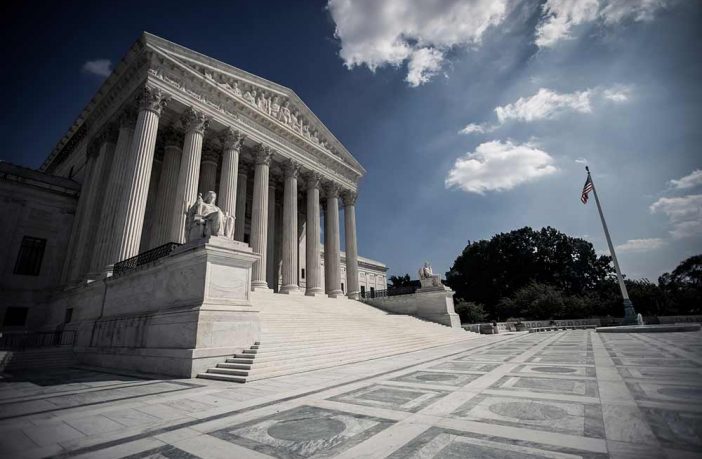The Supreme Court on Monday handed a victory to President Donald Trump by ruling in favor of the newest travel freeze. Lower court rulings had prohibited the administration from applying the proclamation to foreigners who have a “bona fide” tie to the country. Monday’s ruling, however, will allow the administration to carry out the new policy to its fullest extent until the case is decided on its merits.
This marks the first time justices have allowed any edition of the freeze to go forward in its entirety. With only two of the nine justices dissenting, it signals that the high court is distinguishing the latest version from previous iterations and could be more likely, in the future, to rule in favor of the freeze on the merits.
Issued in September, the third edition of the travel freeze restricted the entry of nationals from Iran, Libya, Yemen, Somalia and Syria North Korea, Venezuela, and Chad. The challengers returned to the U.S. District Court in Hawaii, where activist Judge Derrick Watson issued a preliminary injunction, which temporarily banned the government from implementing the order until the case has been decided. The federal government appealed that ruling to the U.S. Court of Appeals for the 9th Circuit, which allowed the September 24 order to go into effect while the government appeals, with one exception: The government cannot enforce the order against nationals of the designated countries who have a “bona fide” relationship with a person or entity in the United States.
Last month, the federal government asked the Supreme Court to allow the full order to go into effect while the challenge is being litigated. The government emphasized that the president’s September 24 proclamation is “the culmination of an extensive, worldwide review process conducted by multiple government agencies to determine what information is necessary from each foreign country in order to admit nationals of that country to the United States while ensuring that travelers do not pose a security or public safety threat.” The government also argued the September 24 proclamation “differs from the President’s prior executive orders in both substance and process” – including covering “different countries than the prior orders: it removes one majority-Muslim country; adds other countries, some of which are not majority-Muslim; and excludes various non-immigrant travelers from all but one of the majority-Muslim countries. These differences,” the government concludes, “confirm that the Proclamation is based on national-security and foreign-affairs objectives, not religious animus.”
Stay tuned to ImmigrationReform.com as legal challenges continue in lower courts.





5 Comments
Nice to see SCOTUS in agreement with the President. The district courts in Hawaii and California were both over stepping their bounds by making rulings that effected the entire country, rather than their own districts. Obama’s court appointments have played fast and loose with the law, if they even considered it!
Meanwhile, there are something like 144 judges waiting to be confirmed, while the democrats in Congress do whatever they can to block them.
Vote all these imbeciles out at the midterm!
Thank you President Trump and The Supreme Court!
Thank you, Supreme Court! You did the right thing! God bless you!\
Yes to the travel ban.
What Trump ordered was clearly legal and constitutional in accordance with previous Supreme Court decisions. Maybe you don’t like it, but that’s not how the system works. It’s why we find ourselves in this position, where a large percentage of the political class thinks that because the laws on immigration are not to their liking then they can be ignored. We have laws or we don’t. If you disagree, work to change them. Otherwise we are just another banana republic which seems to be where some people want us to be.